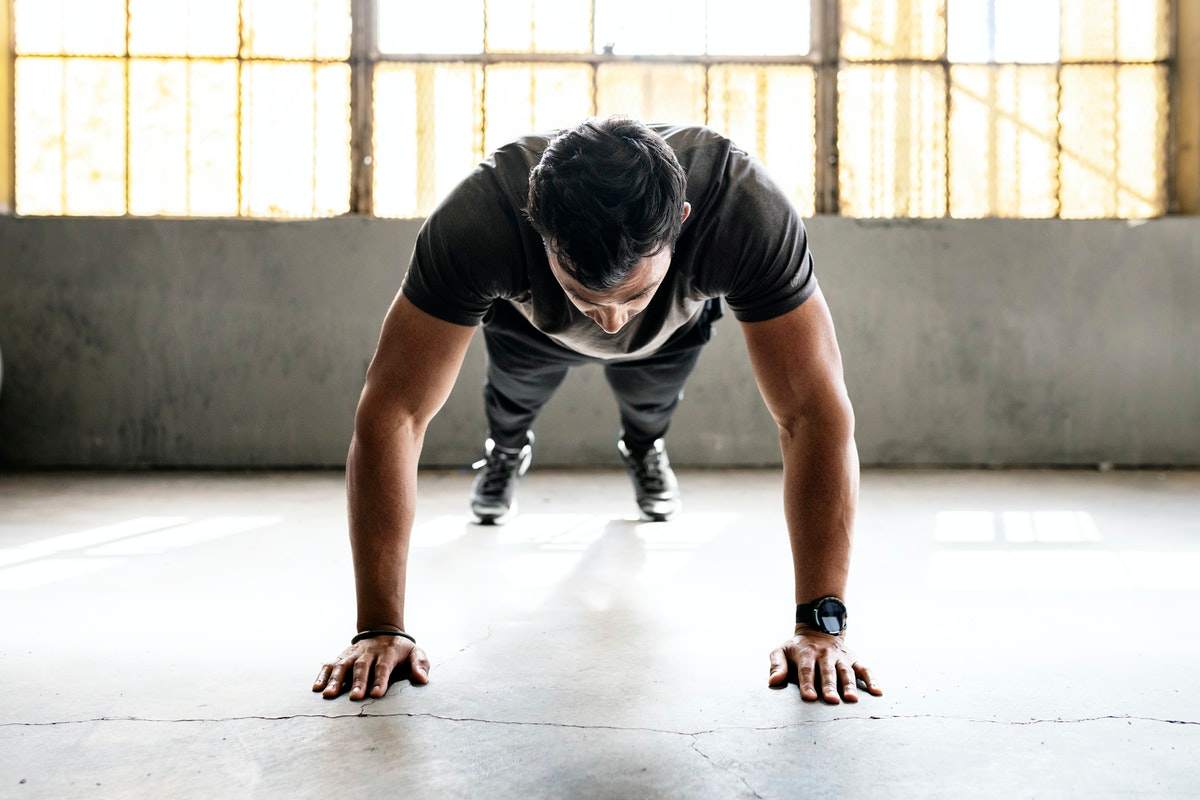Regular exercise significantly reduces stress hormones; serotonin promotes the secretion of noradrenaline and dopamine. That’s how it creates some kind of antidepressant effect. Here are the mental and psychological benefits of exercise:
This question has been preoccupying researchers for many years. Experts explained the effect of regular exercise on brain function and memory…
By observing what is happening around them, children constantly learn new things from their parents and teachers or their elders in their immediate vicinity, and many of these learnings are forgotten unless they are used.
Children are sensitive to applying what they learn and try to experience them as they learn new things, and as they succeed, they store what they have learned in a permanent part of their memory.
Adults, on the other hand, have difficulty in implementing and implementing what they have learned, although their desire to learn is high; however, according to the rate at which neurons are processed in the brain, they are more likely to learn new information by establishing memory relationships.
It shows that in adults, as in children, it is possible for the brain to learn by establishing relationships so that it can store what it learns more easily and more permanently in memory.
Exercising reduces stress how?
In fact, many studies in neurophysiology have shown that regular exercise not only delays aging in brain cells in general, but also encourages the production of substances that enable the formation of new nerve cells and connections, especially in the region of the brain responsible for memory and learning.
It was found that exercising significantly reduces stress hormones, promotes the secretion of chemicals called neurotransmitters such as serotonin, noradrenaline and dopamine, which carry nerve signals in the brain, thus having some kind of antidepressant effect.
Benefits of Physical and Mental Exercise
In order to maintain and improve our muscles, we know that by eating a balanced and healthy diet and exercising regularly, it is necessary to both strengthen circulation in the muscles and send the muscles the nutrients they need.
If we do the opposite, and we stay away from movement, there will be no new muscle cells, and there will be shrinkage and de-strength in the existing ones. As long as our brain is used, it remains more active and stronger.
In other words, the benefits of trying to keep our brain active by engaging in activities that challenge and improve our mind such as riddles, puzzles, problem solving, writing, drawing, reading, memorization, chess and learning foreign languages have been shown. These activities increase the blood circulation of the brain and delay the aging of the brain and also stimulate the formation of new neurons.
Cognitive and Memory Function of the Brain
Scientific studies show that physical movements and exercises, especially from the age of 30, are as important for cardiovascular health as they are for keeping the brain fit and strengthening memory.
Aerobic exercises such as brisk walking, swimming and cycling in particular positively affect mental and memory-related functions by improving the blood circulation in the brain and the flow of nutrients needed by the brain to the brain in order to perform its functions optimally.
As a result, if we take into account the studies carried out in the last 10 years, we can contribute to the easier processing of information, the activation of our memory and the development of new brain cells by exercising regularly for 30 to 45 minutes a day. I wish that scientific studies will be concluded in the coming years that will reveal this with more conclusive evidence…
Exercise is essential against mental health problems!
70% of patients with mental health problems die at an early age because their physical health deteriorates.

Exercise is essential against mental health problems! According to experts who emphasize that serious mental problems shorten life expectancy, it is necessary to eat a healthy and balanced diet, pay attention to our weight and exercise regularly to maintain mental health.
One in four people have mental problems
This year’s title of the World Confederation of Physical Therapy (WCPT), which sets a topic every year and tries to raise awareness for a week, is mental health.
One in four people experience conditions that will negatively affect their mental health throughout their life, the experts said.
Mental problems shorten life
Noting that mental health problems are one of the main causes of general disease burden worldwide, experts said:
The life expectancy of people with serious mental illness is shortened by 10-20 years compared to those with non-communicable preventable diseases such as heart disease. 70% of patients with mental health problems are also lost at an early age because their physical health deteriorates.
Those with chronic diseases also have mental problems
However, people with chronic diseases, regular medications or prolonged treatments also have mental health problems, the experts said, adding that “20% of patients with arthritis have depression and anxiety, and 33% of patients with stroke have depression and vulnerability syndrome (especially in the elderly).”
Listen to these suggestions!
Experts have outlined their recommendations to protect our mental health:
- We need to eat a healthy and balanced diet.
- We need to keep our body weight within healthy limits.
- We should exercise regularly.
- We must consume or give up alcohol at a very low level.
- We shouldn’t smoke.
- We need to keep our blood pressure within normal healthy limits.
- Regular exercise is also beneficial for the brain
Scientists who state that exercise investment has very important and powerful effects not only for physical health, but also in the brain; “Regular physical activity is like a very precious gem, it always has to be in your life. Normal blood pressure, pulse, cholesterol level, insulin level and normal body weight, which you can provide by taking your exercise pill regularly, will also protect you from the risk of dementia in older age as an umbrella.”
Exercise recommendations:
At least 150 minutes of moderate aerobic activity per week and strengthening exercises for large muscle groups 2-3 days a week.
High intensity aerobic activity for at least 75 minutes per week and strengthening exercises for large muscle groups 2-3 days a week.
You can mix medium and high intensity aerobic exercises: you can run for 30 minutes two days a week and walk fast on other days. Again, it is imperative that you do strengthening exercises for large muscle groups 2-3 days a week.
Inactivity shrinks the brain
People with 20% lower physical mobility levels than normal also had small brains compared to their peers, the experts said.
Likewise, it was determined that people with high heart rate (pulse) and blood pressure (blood pressure) had smaller brain volumes than their peers with normal blood pressure and pulse.
High intensity interval training, aerobic exercise, weight training, yoga, sports or sports-specific activities enable the development of different functions in the brain. Regions with functions in many subjects, from memory and navigation to complex thinking, problem solving, reasoning and multi-job work, are taking action.
Consult your physiotherapist for exercise

Physiotherapists work with great dedication to increase the level of physical activity, increase heart and lung capacity, increase muscle strength, and improve the level of independence in a large number of diseases that require long-term treatment.
Entrust your health to specialists. The specialist in exercise is physiotherapists. Keep in mind that exercise and sports only contribute to your health when done effectively and in the right ways. Improper and inadequate exercises invite more injuries and illnesses.
For a healthy happy life, consult your physiotherapist, who is the only one who will give you the right, effective and health-maintaining exercise prescription.
Exercise: The most powerful weapon in vulnerability syndrome!
Fragility syndrome, which occurs with biological aging, leads to fatigue, decreased performance, greater sensitivity to the diseases that accompany infections.
The most effective weapon for combating vulnerability syndrome is exercise, experts say, underlining the need for a balanced diet, a healthy and protein-rich diet and adequate fluid intake.
Experts say the aging process leads to memory, organ and functional disorders that require medical and medical care support.
Scientists note that fragility syndrome, which is not an independent disease, is a complex condition characterized by fatigue with biological aging and decreased performance as a result of natural, becoming more susceptible to diseases that accompany infections than their peers.
The consequences of fragility are sudden and difficult to control weight loss, muscle loss and muscle weakness, joint pain, feeling of insecurity in walking, bone loss (osteoporosis) and increased risk of broken bones, the experts said.
Diabetes and high blood pressure increase risk
Various risk factors and developmental processes are seen as the underlying causes of vulnerability syndrome, including diabetes mellitus and high blood pressure (hypertension), chronic inflammatory processes in the body and psychological factors.

Watch out for slowing down in movements!
If you have been affected by this syndrome, you may have a weaker immune system, anemia and varying hormone levels than those in your own age group. With a decrease in your physical capacity, you will have faster depletion, slowing of movements, decreased protective movements and, as a result, a less active life. Lack of movement leads to reduced muscle mass and muscle weakness. Your walk often slows down and you step on the more unsafe place. Bone loss in some people can also be added to this table, and the result is unfortunately; Bone pain, common fractures. Physical weakness also affects the mental state and often causes emotional exhaustion.
If you have age-related fragility syndrome, it is important to eat a balanced diet, especially to get you all the necessary nutrients and enough fluids. Follow a healthy, protein-rich diet and avoid vitamin D deficiency. If you can’t control your sudden and rapid weight loss, you can get support from a nutritionist.
You can slow down biological aging
In order to maintain the structure of your muscles and therefore your physical strength, I recommend you exercise. This should be accompanied by an independent exercise training or, if necessary, a physiotherapist.
Strength training, coordination and balance combination exercise training train your muscles and mind and reduce your risk of falling.
You can use weights to increase strength. The correctly determined weight is also suitable for older age groups. In addition to physiotherapy, you can also engage in activities such as regular walking and swimming.”
Don’t neglect my mental stimulation!
On the high-risk stairs, you can get up and down, holding the railings with both hands. For your safety, you can use a cane, forearm crutches or walkers.
You can place a base on the floor of the house that prevents slipping, and make sure that the corners are not sharp. Ensuring that there are holding places in the toilets and bathrooms will again increase your safety. If necessary, you can install a home emergency call system that can help. Also, do not neglect mental stimulation. Even simple measures such as reading the daily newspaper and solving crossword puzzles have a positive effect.


